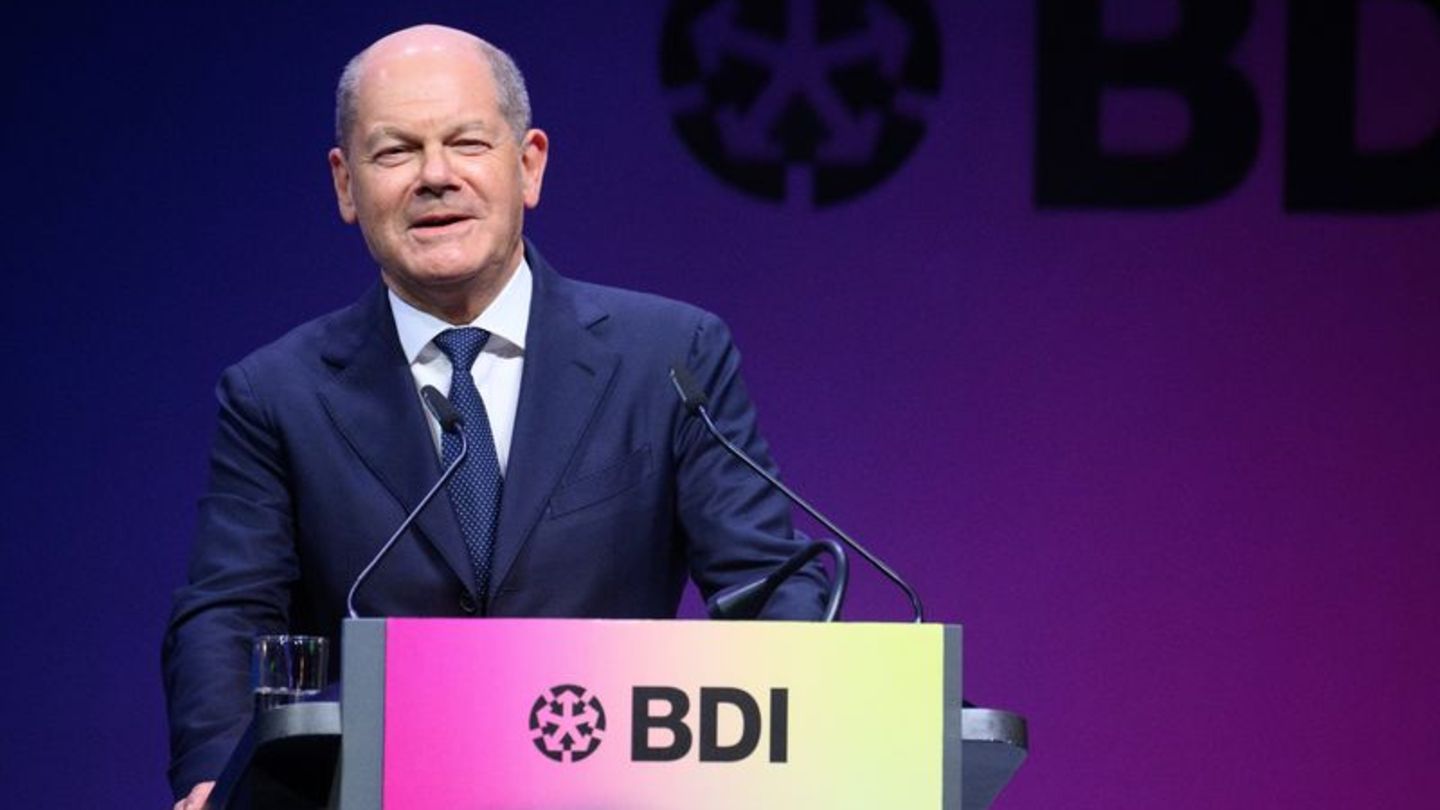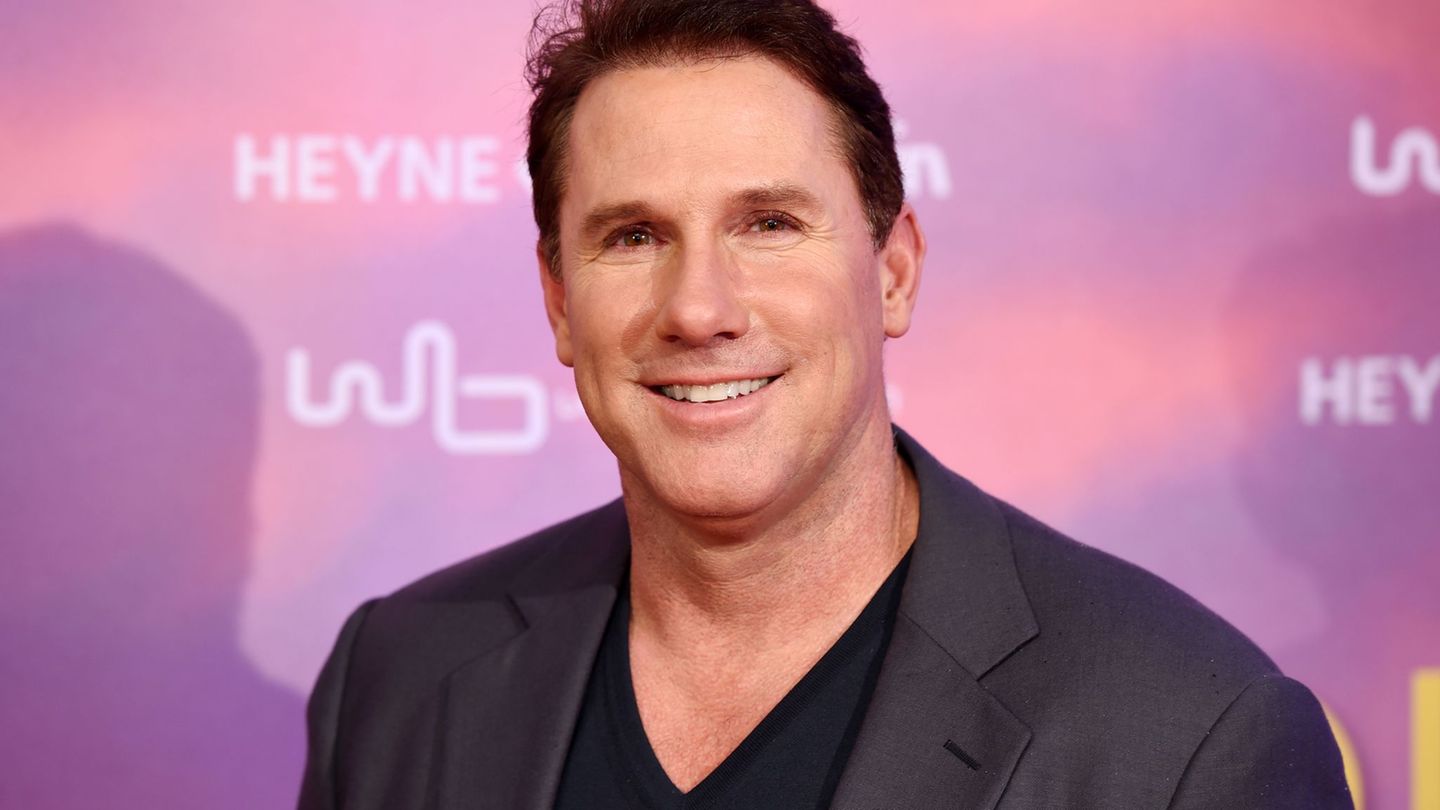There is obviously a conciliatory tone between industry and the Chancellor’s Office. How the Chancellor appears to industry.
It was a general criticism: Two “lost years” for Germany as a business location, Industry President Siegfried Russwurm accused the Federal Government of underestimating the seriousness of the situation. The Chancellor countered, spoke of “turnaround years” and warned against bad-mouthing the location. That was in April – two months later, both sides are trying to de-escalate the situation on Monday at the Industry Day in Berlin.
Russwurm, President of the Federation of German Industries (BDI), said he had rarely heard the Chancellor use the words “tempo” and “speed” so often. Scholz began his remarks by saying that he had applauded frequently during Russwurm’s speech. The Chancellor outlined points of a planned growth package. But Russwurm also made it clear that the coalition must now deliver.
Traffic light before important decisions
The German economy is stagnating, with the BDI expecting only minimal growth of 0.3 percent for 2024. But weak growth means less room for maneuver in the state budget, said Russwurm. This is exactly what the federal government is currently negotiating about the 2025 budget. Billions of dollars worth of holes need to be plugged. Several departments do not want to comply with the austerity targets set by Finance Minister Christian Lindner (FDP). The coalition is also planning a “dynamization package” to boost growth.
Russwurm called on the traffic light coalition of the SPD, Greens and FDP to send a clear signal for more growth. Industry is committed to Germany as a business location, companies want to invest and grow. “But that cannot be done with the handbrake on.” The announced “dynamization package” must live up to its name. In order for more companies to invest, depreciation must be made easier. The wish list also includes: less bureaucracy, faster approvals, more skilled workers, lower corporate taxes.
Scholz promises relief
Russwurm said that there was a clear awareness of the problem in the Chancellery. Translated, this means that the government headquarters has recognized that something must be done to stimulate growth. Behind the scenes, industry said that the Chancellor had stopped talking about a “green” economic miracle through the climate-friendly restructuring of the economy – and very few in industry are expecting such a miracle.
Scholz said with regard to the “dynamization package” that the federal government wanted to promote private investment. “I could imagine that in terms of depreciation and research funding we would go even further than what we have achieved with the Growth Opportunities Act.” However, this would also require the approval of the states.
Following a mediation process between the Federal Council and the Bundestag, the Federal Government’s Growth Opportunities Act, which provides relief for companies, turned out to be significantly smaller in volume than planned.
Chancellor: More work incentives
The Chancellor went on to say that the job supply should be expanded by making voluntary, longer-term work significantly more attractive. In addition, it should be easier for parents to work and work incentives should be increased, including through taxation.
Industry will be watching closely to see what the package ultimately comes out of – Russwurm described the law that was passed and torn apart in the mediation process as a “little growth opportunity law”.
But one thing will not happen, as Economics Minister Robert Habeck (Greens) said: special funds worth billions, for example for the renovation of the partly dilapidated infrastructure. The BDI had proposed such credit-financed special funds outside the debt brake and under certain conditions. The association believes that additional public financing of up to 400 billion euros is necessary over the next ten years in order to strengthen the location.
Commitments in energy policy – and open questions
One of the disadvantages most frequently cited by the economy in international comparison is high energy prices. With regard to the climate-friendly restructuring of the economy, Scholz said he was aware that the transformation represented a challenge for Germany as a business location due to the different levels of energy prices worldwide.
He referred to relief measures taken by the federal government, such as the reduction of electricity tax to the European minimum rate for manufacturing companies. The federal government is currently discussing intensively how relief measures could be made permanent, the Chancellor made clear. Companies should be given clarity.
The industry is also demanding clarity in important decisions elsewhere. This concerns, for example, the government’s power plant strategy. The government had agreed on key points for the promotion of new gas-fired power plants, which will later be operated with hydrogen – and are intended to be “backups” for renewable energy sources when there is no wind and no sun. However, approval from the EU Commission under state aid law is still pending – and the future design of the electricity market is also open. Russwurm also sees such open questions in the construction of a hydrogen core network, for example.
Source: Stern




